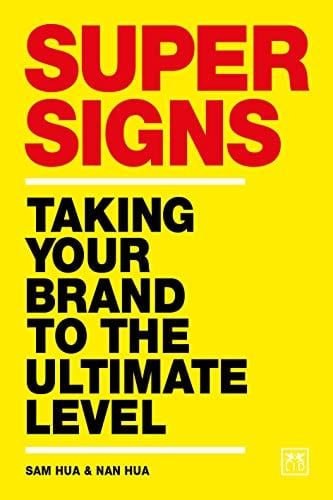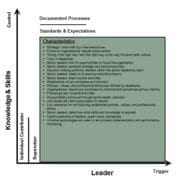Brands Represent Risk Mitigation for Consumers
 Things exist because we need them. We have brands not because companies made them, but because society needs them. If society and consumers didn’t need brands, no amount of effort from companies could bring them into existence.
Things exist because we need them. We have brands not because companies made them, but because society needs them. If society and consumers didn’t need brands, no amount of effort from companies could bring them into existence.
How do brands work on a societal level? Let’s start by listening to economists instead of brand experts.
Some economists explain brands from a game-theory perspective. They say that brands are a mechanism for companies to engage customers in repeated games. And by giving customers an opportunity to punish companies, brands create a worry-free choice for consumers.
No trust can be created in a one-time game. Why do tourist traps offer such poor quality for high prices? Because it’s a one-time game. Shops and restaurants at tourist destinations know that you’re unlikely to come back, and they don’t expect you to. On the other hand, the restaurant right around the corner – which also caters to year-round residents – provides great service and quality, because they’re counting on repeat business from satisfied customers. If you don’t like the restaurant, you can punish it by never visiting again. A neighborhood restaurant relies on customers from nearby. It can’t survive if it’s alienated them.
In the US, McDonald’s doesn’t allow franchise locations near highway rest stops. All McDonald’s locations in rest stops are directly owned and operated by the corporation. That’s because stopping at a McDonald’s right off a highway is a one-time game for that specific location. It’s only a repeated game from the perspective of the company’s national headquarters. And so, McDonald’s maintains ownership of these one-time game locations to ensure the quality and service that its brand is known for.
That’s why we say brands are a social mechanism to mitigate risk for customers when they purchase goods and services.
This guest post is adapted from SUPER SIGNS: Taking Your Brand To The Ultimate Level by Sam Hua and Nan Hua, founding partners of Shanghai H&H Marketing Consulting Company.
About The Authors
 Sam Hua is a board chairman and founding partner of Shanghai H&H Marketing Consulting Co., Ltd, a well-known expert in creative strategic marketing, and chief brand adviser of National Real Estate Manager Alliance. He has been dedicated to marketing strategies and creative marketing services for nearly 20 years. He established the first systematic marketing methodology – “H&H Methodology” – in the domestic marketing circle.
Sam Hua is a board chairman and founding partner of Shanghai H&H Marketing Consulting Co., Ltd, a well-known expert in creative strategic marketing, and chief brand adviser of National Real Estate Manager Alliance. He has been dedicated to marketing strategies and creative marketing services for nearly 20 years. He established the first systematic marketing methodology – “H&H Methodology” – in the domestic marketing circle.












Leave a Reply
Want to join the discussion?Feel free to contribute!